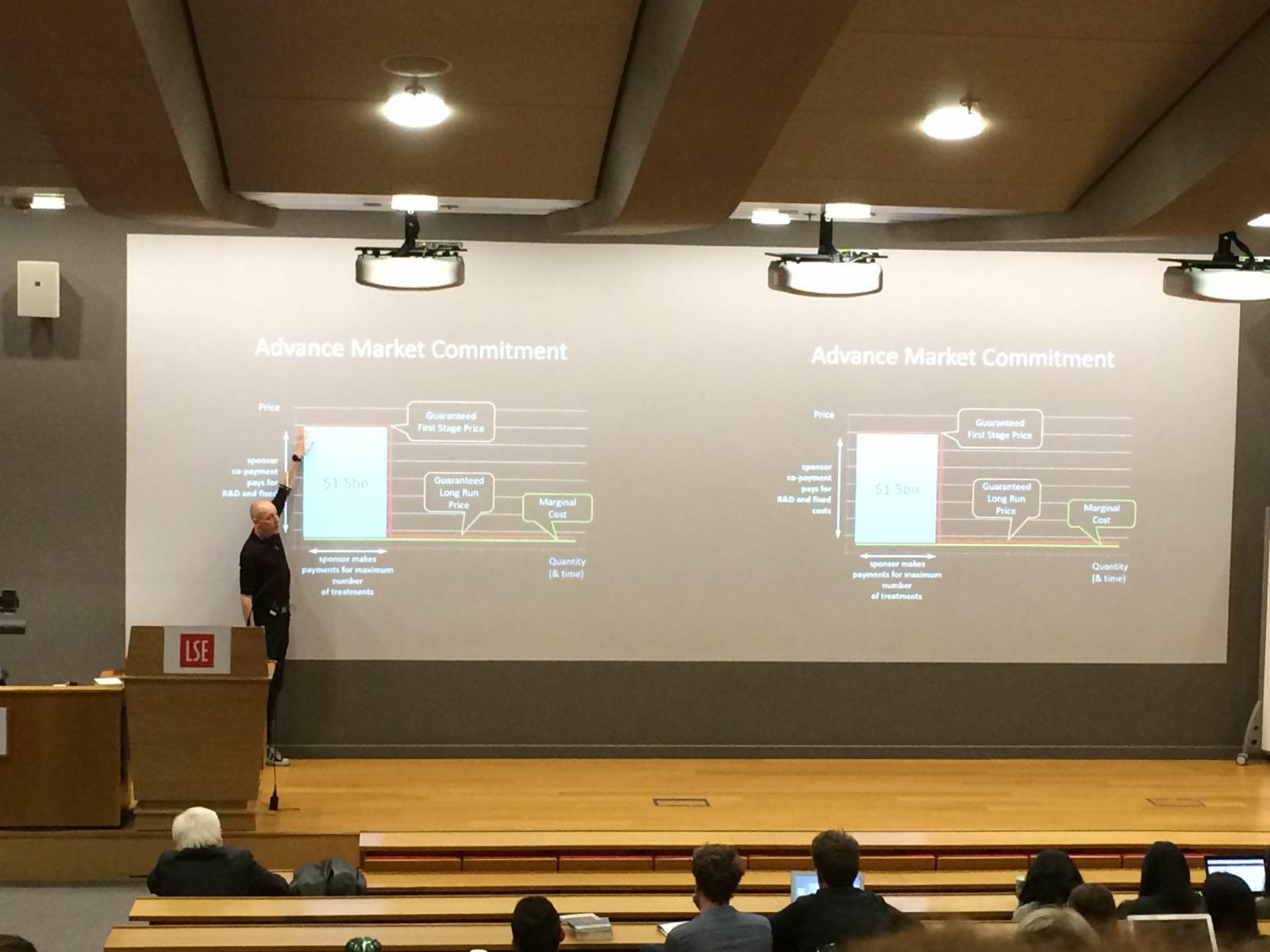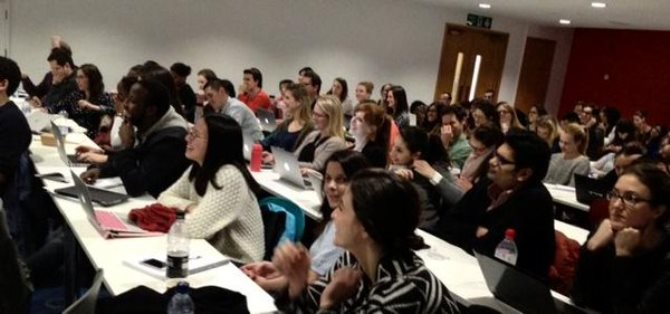MSc student in Anthropology and Development Jack Portman examines how the conceptual frame of concentrated poverty obscures the role of the market in (re)producing poverty. Instead, he argues, it locates poverty in an imagined apolitical space untraversable by, and illegible to, institutional resources.
In his influential book The Anti-Politics Machine: “Development”, Depoliticization, and Bureaucratic Power in Lesotho (1994), the anthropologist James Ferguson argues that the development discourse – comprised of the practices, epistemes, and institutional frameworks of development – produces an array of unintended consequences which, almost ubiquitously, thwart and depoliticize development interventions. Ferguson observes that development institutions, such as the World Bank, are positioned primarily to offer technocratic solutions to technical problems. That is, they seek to identify and rectify the ahistorical, apolitical, purely technical problems facing the world – of which there are, of course, none.
The fact that such purely technical developmental puzzles are fictitious is circumvented, in part, by the development discourse: deeply political, historically situated, and ideologically inflected “problems” can be stripped of their politics and so made to appear as though they demand the products and services development institutions have to offer. What results can be disastrous.
Ferguson calls this discursive process an “anti-politics machine.” In one salient example of how the World Bank fundamentally misconstrued the politics of land use in Lesotho, he offers that:
“Geography may seem a strange way to go about explaining why one group of people is poor while its neighbours are rich. After all, we would not seek to explain why the people of the South Bronx are poor by noting that the South Bronx lacks natural resources and contains more people than its land base can support. The South Bronx is a slum, and that is a social fact, not a geographical one” (62).
Depoliticizing poverty
What Ferguson is alluding to is a common technocratic proclivity: the discursive representation of poverty as a geographic abnormality, divorced from its historical and social context. As John Harriss notes, “the way in which poverty is conceptualized separates it from the social processes of the accumulation and distribution of wealth, which depoliticizes it.” This is a strategy which gained enormous traction during the 1980s and 90s – the early years of neoliberalism – when retrenchment, austerity, and the formulation of new neoliberal subjectivities reconfigured problems such as poverty – which could ostensibly be addressed through expanded welfare provisioning – as manifestations of individual malfeasance.
Particularly, the discourse and conceptual framework of concentrated poverty manufactured the popular notion that poverty occurs when people find themselves in places where markets have yet to take hold. The typical formulation of the problem is as such: “the disadvantaging effects of individual-level poverty are exacerbated when living in highly concentrated areas of poverty, cut off from institutional resources.” By this account, when lots of poor people live together, this must mean they are living in an area that is, for one reason or another, illegible to or untraversable by “institutional resources.”
Concentrated poverty as a conceptual frame elides the ways in which poverty is (re)produced socially; that is, through capitalist accumulation and the production of surplus populations as capital is invested in labour displacing technologies. By pinning poverty on geography, on the inability of institutional resources to reach the impoverished where they are, technocrats justify market-led anti-poverty policies, the only kinds of anti-poverty policies that neoliberal states can service. This strategy atomizes the responsibility for raising oneself out of poverty and forces people into compromising and exploitative labour arrangements with dubious prospects for social mobility.
The neoliberal logics of HOPE VI
Take, for example, the Housing Opportunities for People Everywhere (HOPE VI) programme, an American housing policy calibrated to deconcentrate poverty in “severely distressed” public housing developments. HOPE VI provides funds for the redevelopment of blighted public housing infrastructure into mixed-income and mixed-use developments. By design, this results in the displacement of the majority of the original inhabitants of the renovated public housing development, who are offered Housing Choice Vouchers enabling them to seek subsidized housing on the private rental market.
The logic of HOPE VI resonates with neoliberal ideals of internalized work-discipline and the atomization of the responsibility for poverty alleviation. Policy makers assert that by displacing poor residents from public housing developments and forcing them into the private rental market, former tenants will be better able to access the “jobs and services” required for “economic success” and thus will improve their circumstances on their own. Unstated yet ever present are the structural reasons why large groups of people cannot find stable, secure employment: it increasingly does not exist.
Displacing people from their homes in order that they might self-start social mobility – on the false premise that their previous inability to do so resulted from their residence in an area mysteriously untouched by markets – typifies Ferguson’s articulation of the anti-politics machine. The anti-politics of HOPE VI, and of concentrated poverty as a conceptual frame, is a discursive manoeuvre relied upon by the neoliberal state in order that market externalities – including the production of surplus population – are repackaged as prima facie evidence of the necessity and efficacy of the market mechanism.
The sociologist Loïc Wacquant famously asserted that neoliberalism constitutes an “articulation of state, market and citizenship that harnesses the first to impose the stamp of the second onto the third.” The anti-politics machine may be responsible for greasing the wheel of Waquant’s influential formula. HOPE VI, for example, reflects a state agenda to reformulate the terms of citizenship in the image of the market. The programme achieves this effect by depoliticizing poverty and discursively reformulating it as a geographic anomaly. Its ability to actually reduce poverty and facilitate social mobility is far from evident – as Ferguson notes, in development, failure is the norm. However, the constellation of unintended effects of HOPE VI – the inscription of neoliberalism into the built environment, the gentrification of public housing, new regimes of surveillance and technologies of control in the renovated mixed-income developments, and the production of neoliberal subjects – should not be overlooked.
It is the anti-politics of concentrated poverty that justify HOPE VI. For a market-led intervention to act on a problem produced by the market, rhetorical work needs to be done to reconfigure the problem in order to avoid glaring cognitive dissonance. The politics of poverty are untenable to the neoliberal state, hence the central role of the anti-politics machine and perverse, stripped-down concepts like concentrated poverty.
The views expressed in this post are those of the author and in no way reflect those of the International Development LSE blog or the London School of Economics and Political Science.
Photo: The demolition of the Pruitt–Igoe joint urban housing projects in St. Louis, Missouri, built in the 1950s and demolished in the 1970s. Credit: The Milwaukee Independent.





